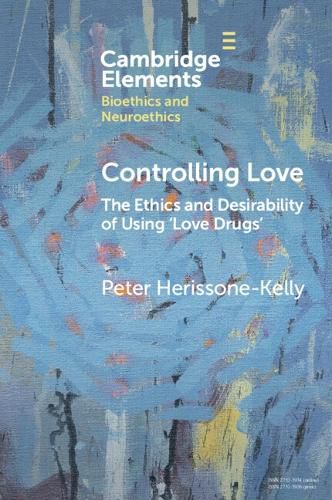Readings Newsletter
Become a Readings Member to make your shopping experience even easier.
Sign in or sign up for free!
You’re not far away from qualifying for FREE standard shipping within Australia
You’ve qualified for FREE standard shipping within Australia
The cart is loading…






Recent research in neurochemistry has shown there to be a number of chemical compounds that are implicated in the patterns of lust, attraction, and attachment that undergird romantic love. For example, there is evidence that the phenomenon of attachment is associated with the action of oxytocin and vasopressin. There is therefore some reason to suppose that patterns of lust, attraction, and attachment could be regulated via manipulation of these substances in the brain: in other words, by their use as ‘love drugs’. A growing bioethical literature asks searching questions about this prospect, and especially about the use of such drugs to enhance or reignite attachment in flagging relationships. This Element examines some of the central arguments on the topic, and sounds a note of caution. It urges that there are reasons to think the states of attachment produced or facilitated by the use of such drugs would not be desirable.
$9.00 standard shipping within Australia
FREE standard shipping within Australia for orders over $100.00
Express & International shipping calculated at checkout
Recent research in neurochemistry has shown there to be a number of chemical compounds that are implicated in the patterns of lust, attraction, and attachment that undergird romantic love. For example, there is evidence that the phenomenon of attachment is associated with the action of oxytocin and vasopressin. There is therefore some reason to suppose that patterns of lust, attraction, and attachment could be regulated via manipulation of these substances in the brain: in other words, by their use as ‘love drugs’. A growing bioethical literature asks searching questions about this prospect, and especially about the use of such drugs to enhance or reignite attachment in flagging relationships. This Element examines some of the central arguments on the topic, and sounds a note of caution. It urges that there are reasons to think the states of attachment produced or facilitated by the use of such drugs would not be desirable.